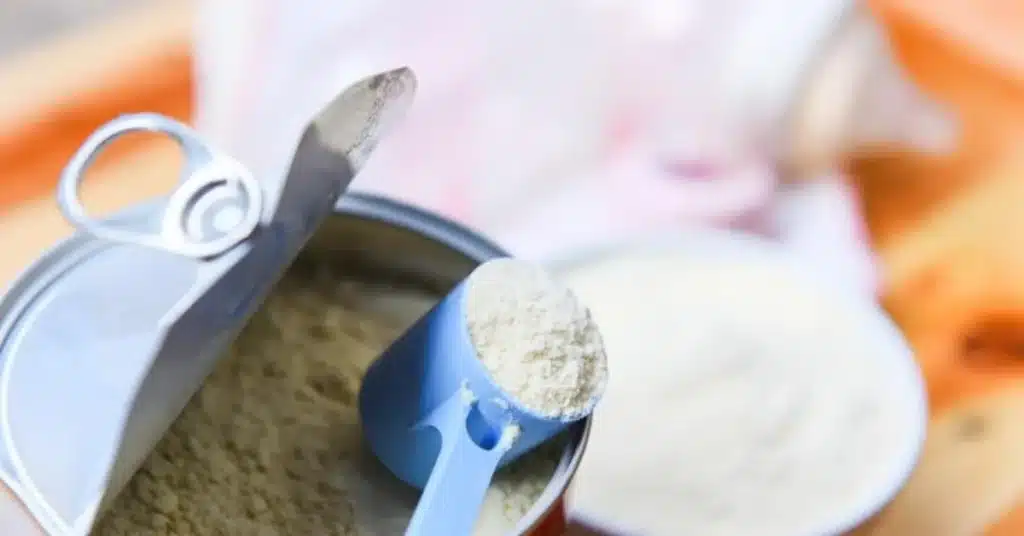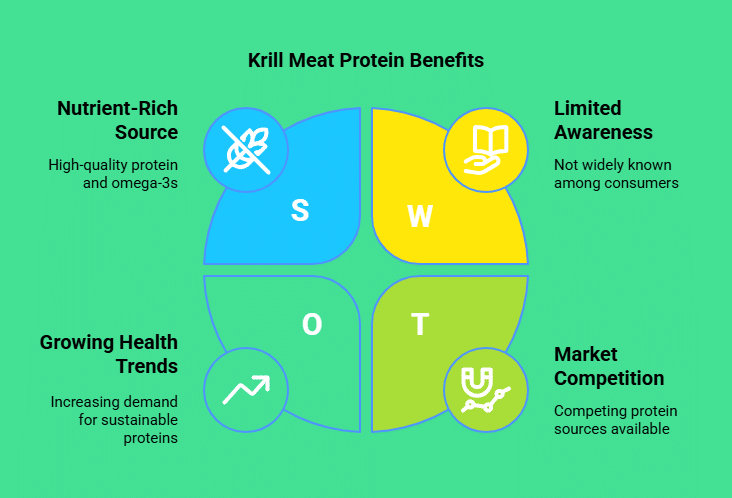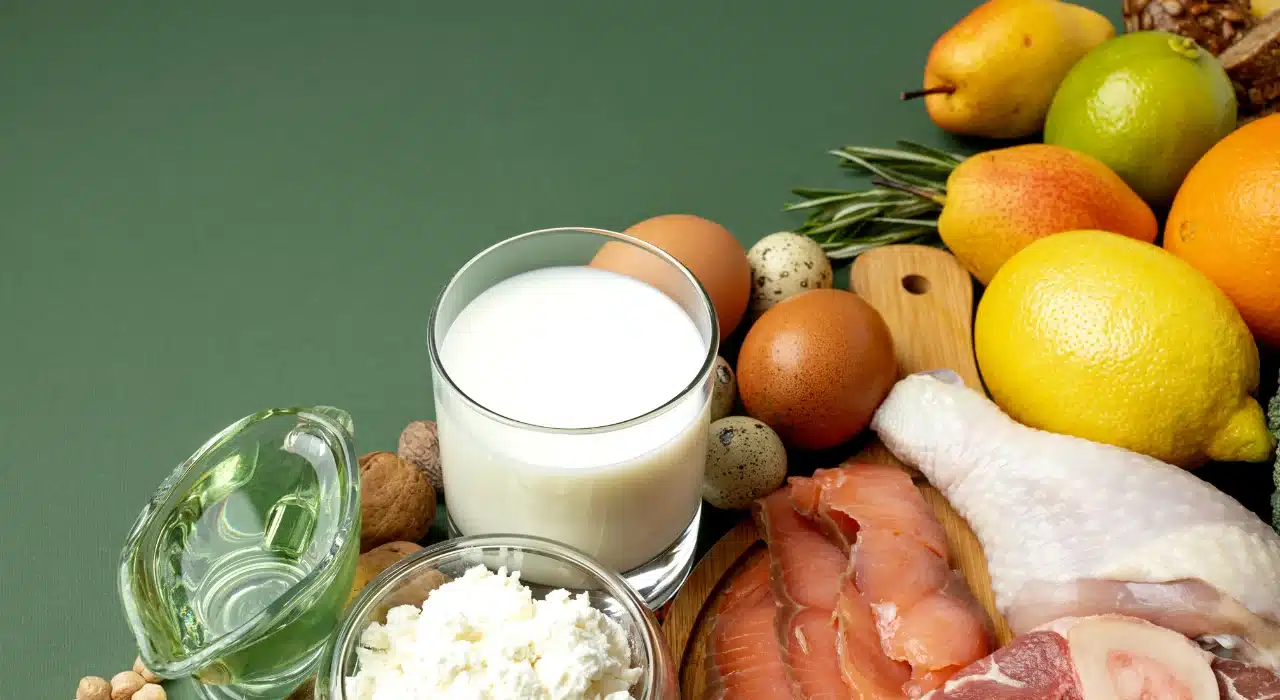When we think of protein, the first thing that often comes to mind is muscle building. While it’s true the role of protein in different health conditions plays a vital role in supporting muscle growth, that’s far from the full picture. In fact, protein is essential for a range of bodily functions, including those that are vital in managing health conditions such as weight, diabetes, heart health, and more. From weight management and heart health to blood sugar control and immune function, protein supports your overall well-being in many ways.
Let’s take a closer look at how protein is crucial for managing different health conditions.
Why Protein Matters: A Quick Science Overview

Protein is critical for every cell in your body, supporting essential processes like muscle repair, hormone production, and immune defense. Without protein, your body can’t function at its best.
How Protein Works in Your Body
Every cell in your body relies on protein to perform critical functions, like repairing damaged tissues, creating enzymes, and fueling your metabolism. When you consume protein, you’re providing your body with the tools it needs to stay healthy, strong, and efficient.
Personalized Protein Needs
Your protein requirements aren’t the same as someone else’s. Depending on your age, activity level, and health status, you may need more protein to maintain peak performance. For example, athletes or those recovering from illness may require higher amounts to support muscle repair and overall function.
Choose the Right Protein Source
Not all proteins are created equal. High-quality sources like krill meat provide not only essential amino acids but also omega-3s, antioxidants, and other nutrients that enhance your health beyond just muscle building.
The Role Of Protein In Different Health Conditions

Protein is essential for overall health, supporting everything from muscle repair to immune function. It plays a key role in managing conditions like weight, diabetes, and heart health. The role of protein in different health conditions is explained below.
Protein & Weight Management
If you’re struggling to manage your weight, the solution could be simpler than you think protein. It’s not just about muscle building; protein is a powerful tool for controlling hunger, boosting metabolism, and supporting long-term weight loss. By including the right sources of protein, like krill meat, you can finally unlock the key to a sustainable, effective weight management plan.
Fuel Your Metabolism
Protein gives your metabolism a much-needed boost. Unlike carbs and fats, your body burns more calories when processing protein. This means you’re actively burning calories even when you’re not working out, making it easier to maintain or lose weight without extra effort.
Stay Full, Longer
One of the biggest challenges in weight management is hunger. Protein is your secret weapon here it slows down digestion, keeping you satisfied for hours. When you include more protein in your meals, you’re less likely to snack mindlessly or give in to cravings.
Regulate Blood Sugar and Maintain Muscle
For weight loss to be effective, you need to regulate blood sugar and preserve muscle mass. Protein does both. By stabilizing blood sugar levels, protein helps you avoid those annoying energy crashes that lead to overeating. Plus, it keeps your muscles intact as you lose fat, so you’re shedding pounds without losing strength.
Protein in Diabetes and Blood Sugar Control
Managing blood sugar is critical for those with diabetes, and protein can play a pivotal role in keeping it under control. Here’s how:
How Protein Affects Blood Sugar
Protein has a minimal impact on blood sugar levels compared to carbs. It slows down the absorption of sugars, helping maintain stable glucose levels and preventing sudden spikes or crashes. This is crucial for keeping energy levels steady throughout the day.
The Power of High-Protein, Low-Carb Meals
For diabetes management, low-carb, high-protein meals are key. Protein helps balance blood sugar by slowing sugar absorption, while reducing carbs keeps glucose levels stable. This combination also promotes satiety, making it easier to control portions and avoid overeating.
Protein & Heart Health
Protein doesn’t just help you manage your weight or blood sugar levels; it also supports your heart. A diet rich in high-quality protein can contribute to better cardiovascular health by helping maintain healthy blood pressure, reducing cholesterol, and improving blood vessel function.
Support Healthy Blood Pressure
Incorporating protein into your diet can help regulate blood pressure, particularly if you opt for lean protein sources like krill meat, fish, and plant-based proteins. These can contribute to lower blood pressure, reducing the strain on your heart and arteries.
Reduce Cholesterol Levels
Certain high-protein foods, such as fish rich in omega-3 fatty acids (like krill), can lower LDL (bad) cholesterol and increase HDL (good) cholesterol. This contributes to better heart health and lowers the risk of cardiovascular diseases.
Boost Blood Flow and Vascular Health
Protein supports healthy blood flow by aiding in the production of nitric oxide, a molecule that helps relax and widen blood vessels. This results in improved circulation, supporting heart function and overall cardiovascular health.
Protein & Muscle Health
Your muscles are constantly working to support movement, maintain posture, and provide strength. Protein plays an essential role in muscle maintenance, repair, and growth, making it critical for people of all ages, especially those involved in physical activities.
Muscle Repair and Recovery
When you engage in physical activity, your muscles experience wear and tear. Protein is essential for muscle repair and recovery, helping your body rebuild damaged muscle fibers, ensuring that your muscles remain strong and functional.
Prevent Muscle Loss with Age
As we age, maintaining muscle mass becomes more challenging. Consuming adequate protein, especially from high-quality sources like krill meat, can help prevent muscle wasting, ensuring better strength and mobility throughout the years.
Enhance Muscle Growth
For those looking to build muscle, protein is a cornerstone of success. By consuming protein-rich foods after workouts, your muscles get the nutrients they need to grow, leading to increased strength and improved performance in physical activities.
Protein & Immune Function
Your immune system is responsible for defending your body against harmful invaders like bacteria and viruses. Protein plays a critical role in maintaining a healthy immune system by supporting the production of immune cells, antibodies, and enzymes.
Boost Immune Response
Protein helps create antibodies and immune cells that fight infections, ensuring your body is prepared to defend itself against illness. Consuming enough protein ensures your immune system has the support it needs to perform at its best.
Fight Infections Faster
When you’re sick, your body needs extra protein to help fight infections and recover. Protein helps repair tissues and organs that are damaged during an illness, making it a vital nutrient when your body is under stress.
Support Antioxidant Production
Protein-rich foods, such as krill meat, are also high in antioxidants that help protect your immune system. These antioxidants neutralize free radicals, reducing oxidative stress and supporting a healthier immune system overall.
Protein & Skin Health
Your skin is the body’s largest organ, and protein is crucial for maintaining its strength and appearance. Whether you’re looking to reduce wrinkles, heal wounds, or maintain a youthful complexion, protein plays a key role in skin health.
Support Collagen Production
Collagen is the protein that gives your skin structure and elasticity. Consuming sufficient protein helps your body produce collagen, which can reduce the appearance of wrinkles and sagging, keeping your skin looking firm and youthful.
Promote Skin Healing
Protein helps in tissue repair, which is especially important when your skin is damaged. Whether you have a cut, burn, or acne scar, adequate protein intake promotes faster healing and reduces scarring.
Maintain Skin Elasticity
Protein-rich foods help maintain skin elasticity, preventing sagging and promoting a smoother appearance. Collagen and elastin, both essential proteins for skin health, are supported by a diet rich in high-quality protein sources.
Protein & Bone Health
Your bones are not just a structural framework for your body; they also store vital minerals like calcium and phosphorus. Protein plays an important role in maintaining bone strength and preventing conditions like osteoporosis.
Strengthen Bone Structure
Protein provides the building blocks needed for the production of bone cells and collagen. This contributes to maintaining the integrity and density of your bones, making them stronger and less susceptible to fractures.
Prevent Osteoporosis
A high-protein diet helps increase bone mineral density, reducing the risk of osteoporosis and fractures. When combined with calcium-rich foods, protein supports long-term bone health and overall mobility.
Promote Bone Healing
For those recovering from bone injuries, protein helps speed up healing by aiding tissue repair. This is crucial for those dealing with fractures or other bone-related conditions, ensuring quicker recovery and reduced pain.
Why Choose Krill Meat for Your Protein Needs?
When it comes to choosing a protein source that supports overall health, krill meat stands out for its unique nutrient profile. Not only is it a high-quality protein, but it also offers additional benefits like omega-3 fatty acids, antioxidants, and essential minerals.

Rich in Omega-3s
Krill meat is one of the best sources of omega-3 fatty acids, which are essential for heart health, reducing inflammation, and improving brain function. These omega-3s complement the muscle-building and blood sugar-regulating benefits of protein, making krill meat a powerful choice for your diet.
Sustainably Sourced
At Krill Arctic Foods, we are committed to providing sustainably harvested krill meat. By choosing our product, you’re not only investing in your health but also supporting responsible fishing practices that contribute to the health of our oceans and marine life.
A Convenient and Versatile Protein Source
Krill meat is easy to incorporate into your meals, whether you’re adding it to salads, soups, or sandwiches. With its high-quality protein content, it’s a great option for those looking to maintain muscle mass, manage weight, or improve overall health.
Conclusion
Protein is essential for managing many aspects of your health. It helps build and maintain muscle, supports weight management, and keeps blood sugar levels in check. It’s also key for heart health, boosting immunity, improving skin, and strengthening bones important for your overall well-being.
Choosing the right protein source is crucial. If you want a nutrient-dense, sustainable option, krill meat stands out. It offers a complete protein profile, omega-3 fatty acids, and other essential nutrients that can support your health in the long run.








